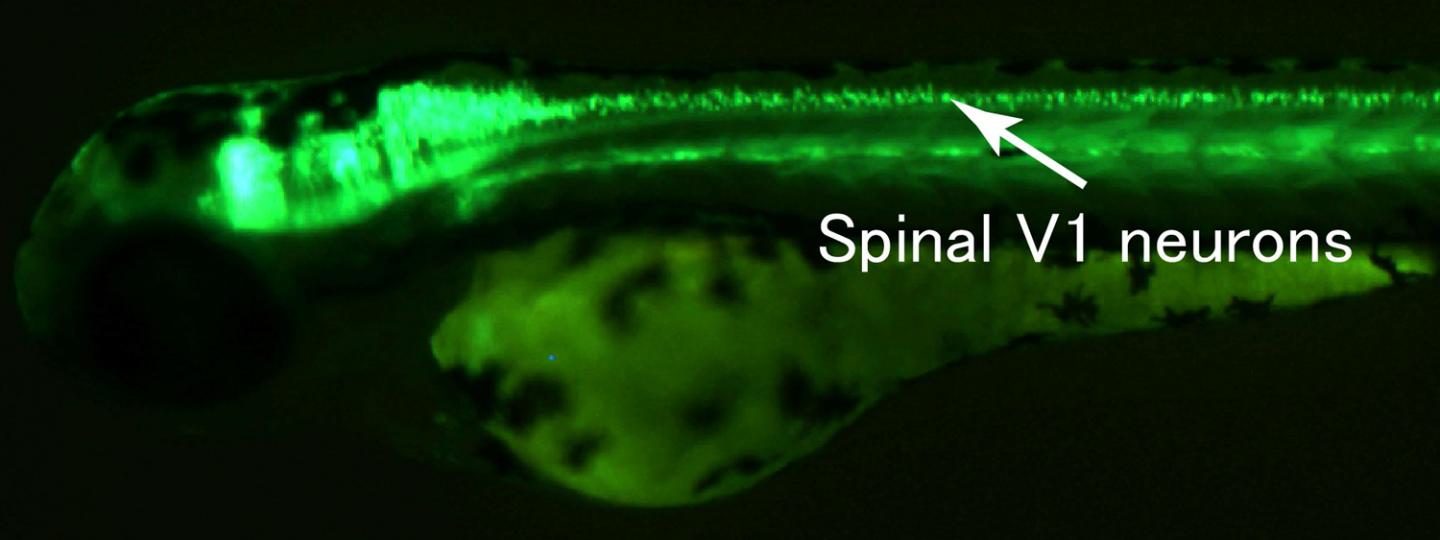
Credit: NIBB
In vertebrate muscles, there are slow and fast muscle fibers. Fast muscle fibers contract rapidly, but are prone to fatigue. Slow muscle fibers have the property of slow contraction, but resist to fatigue. Vertebrates use fast and slow muscles properly depending on the situation.
Using zebrafish larvae, Assistant Professor Yukiko Kimura and Professor Shin-Ichi Higashijima of the National Institute for Basic Biology in Japan have discovered neural mechanisms that suppress slow muscle activity in fish swimming at high speeds. The research results were published in the May 22, 2019 issue of Nature Communications.
The research group conducted research using genetically modified zebrafish from which specific spinal interneurons were removed. Motor neuron activities were compared between normal zebrafish larvae and zebrafish larvae from which said neurons were removed. As a result, they observed that V1 neurons, which are a type of inhibitory interneuron in the spinal cord, suppress the firing of motor neurons that control slow muscles during fast swimming. This is considered to be a mechanism that enables high-speed swimming by preventing fast muscle activity from being disturbed by slow muscle activity.?
Dr. Kimura said “It is possible that mammalian V1 neurons may work in the same way as fish. In fish, fast and slow muscles are physically separated, but in the case of mammals, fast and slow muscle fibers are intermingled, making a similar analysis more difficult. Viewing these results as a catalyst for further study, it is hoped that analysis of the control mechanism of mammalian slow muscle fiber activity, including suppression mechanisms of their activities, can be better advanced.”
###
Nature Communications
“Regulation of locomotor speed and selection of active sets of neurons by V1 neurons” by Yukiko Kimura, Shin-ichi Higashijima
DOI: 10.1038/s41467-019-09871-x
Media Contact
NIBB Office of PR
[email protected]
Original Source
http://www.
Related Journal Article
http://dx.




